
 Department of Conservation and Recreation
Department of Conservation and Recreation
Conserve. Protect. Enjoy.
 Department of Conservation and Recreation
Department of Conservation and Recreation
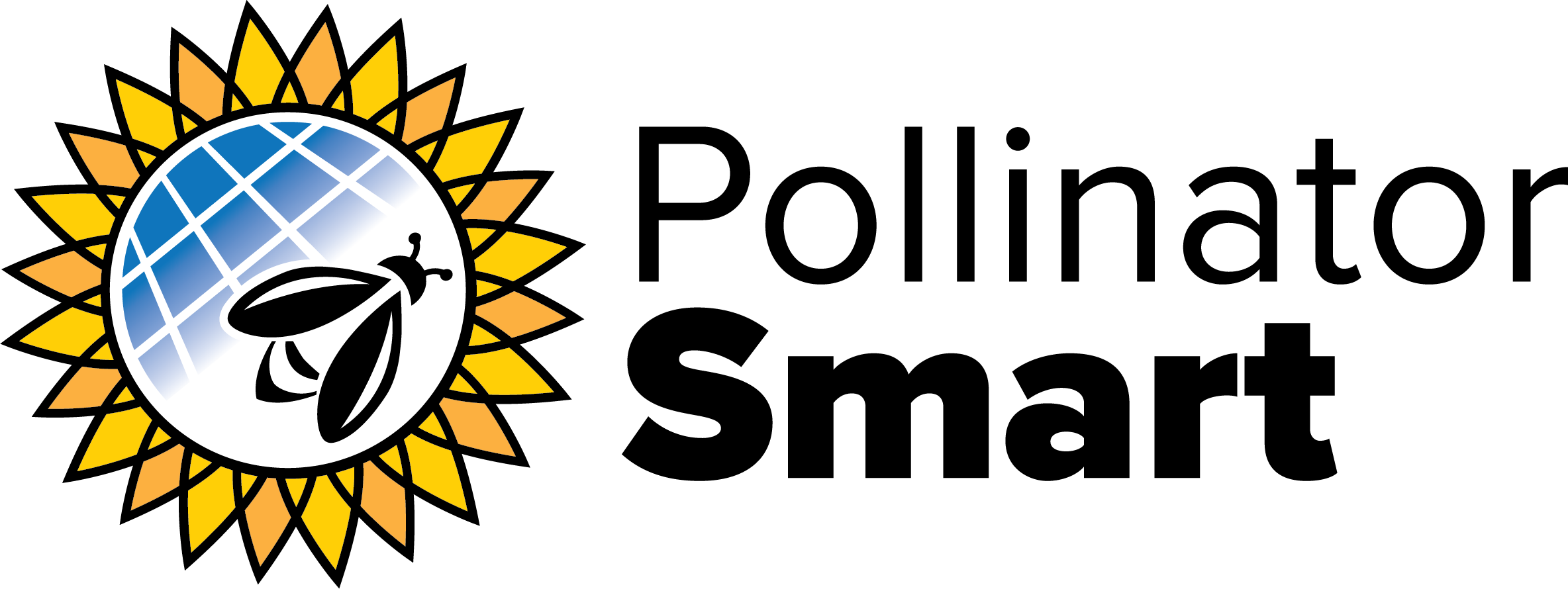
The emerging solar power industry holds in its hands an extraordinary opportunity as decision-makers, engineers and designers consider the impact of their facilities on the landscape. Expertly crafted mixes of native plants can transform a solar facility into a thriving ecosystem that supports pollinator species, birds, and other wildlife, while enhancing facility economic efficiencies.
Learn more about the benefits of native plants on solar sites...
The Virginia Department of Environmental Quality and Department of Conservation and Recreation have developed the Virginia Pollinator-Smart Program, an ecologically -responsible program to encourage pollinator friendly solar energy developments throughout the Commonwealth of Virginia.
Below are photos of some current Pollinator smart certified solar facilities, as well as links to completed scorecards for the facilities.
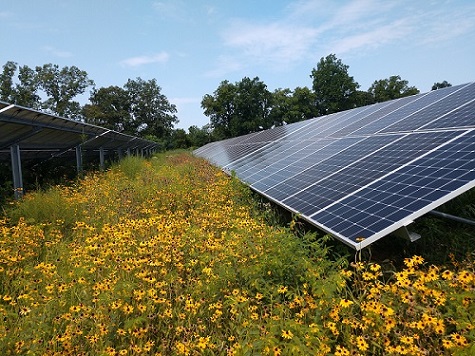
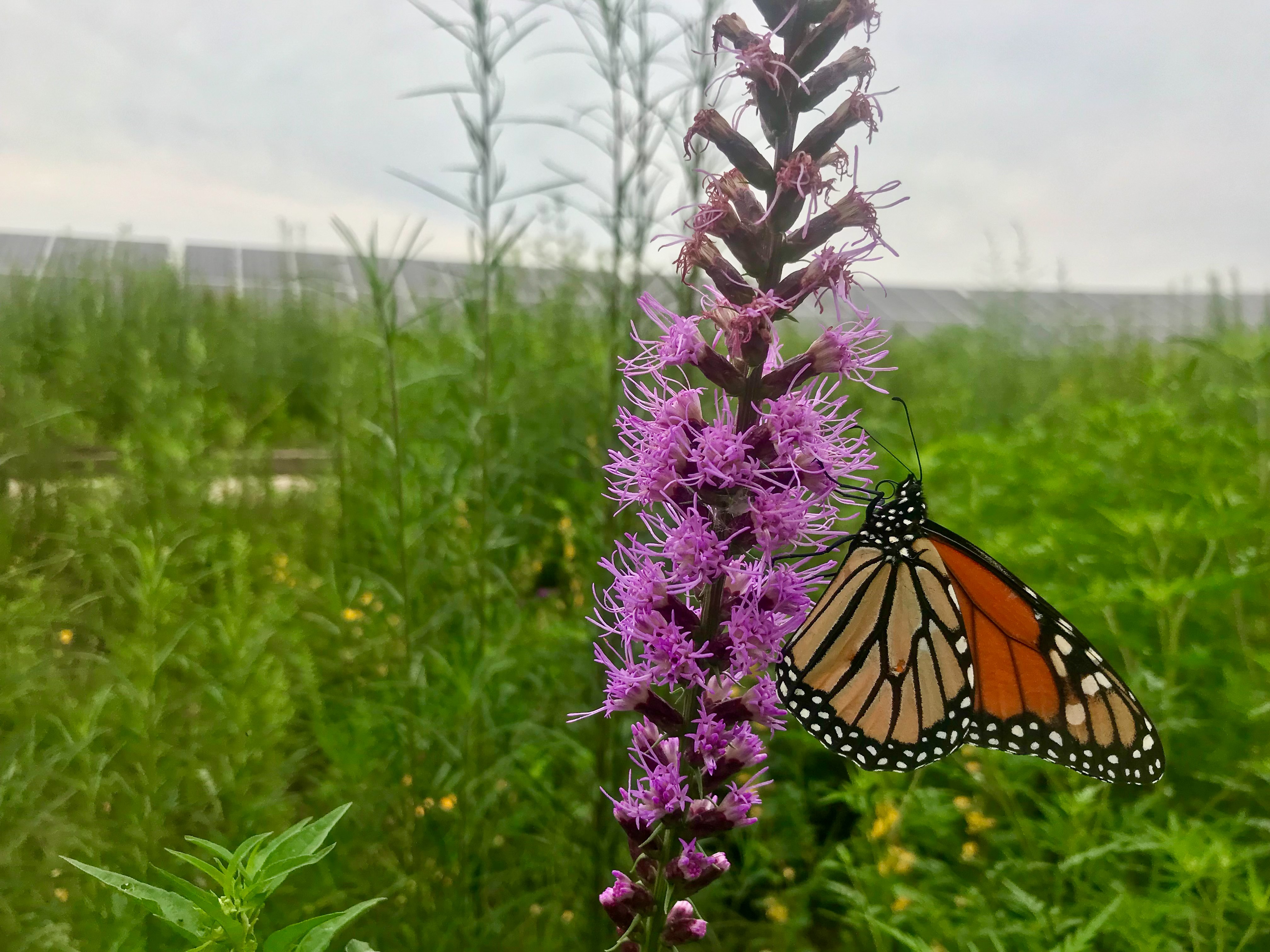
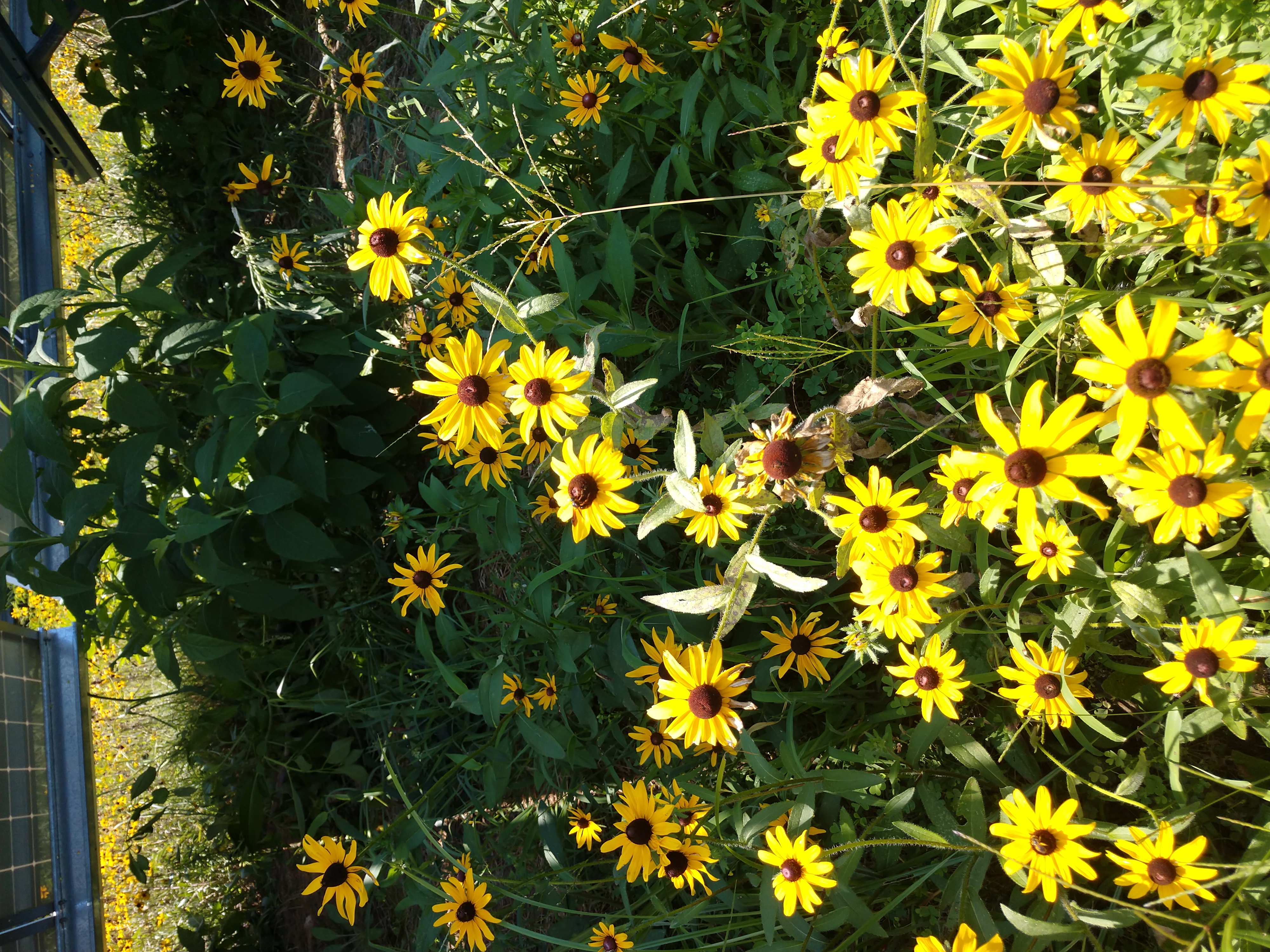
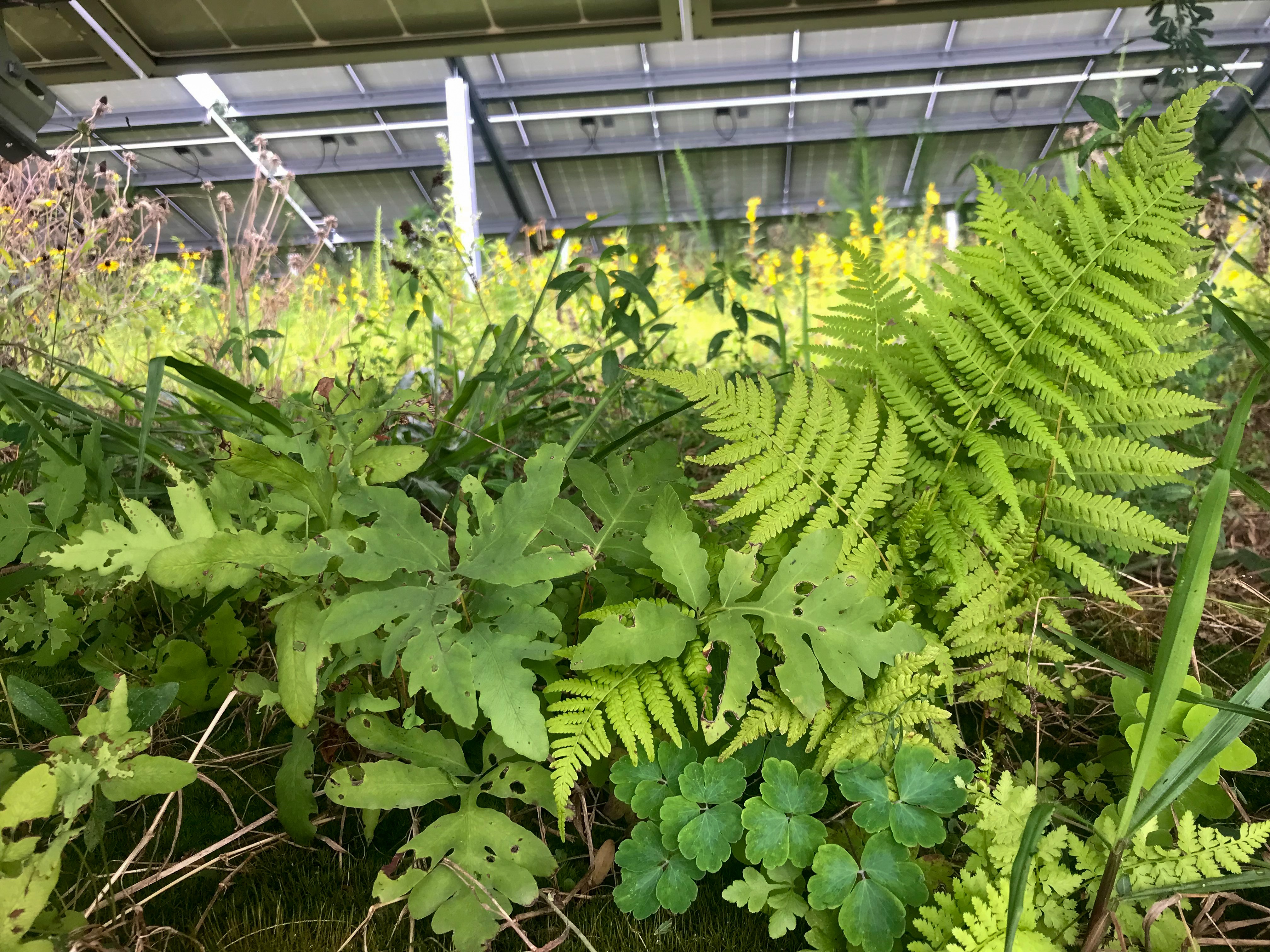
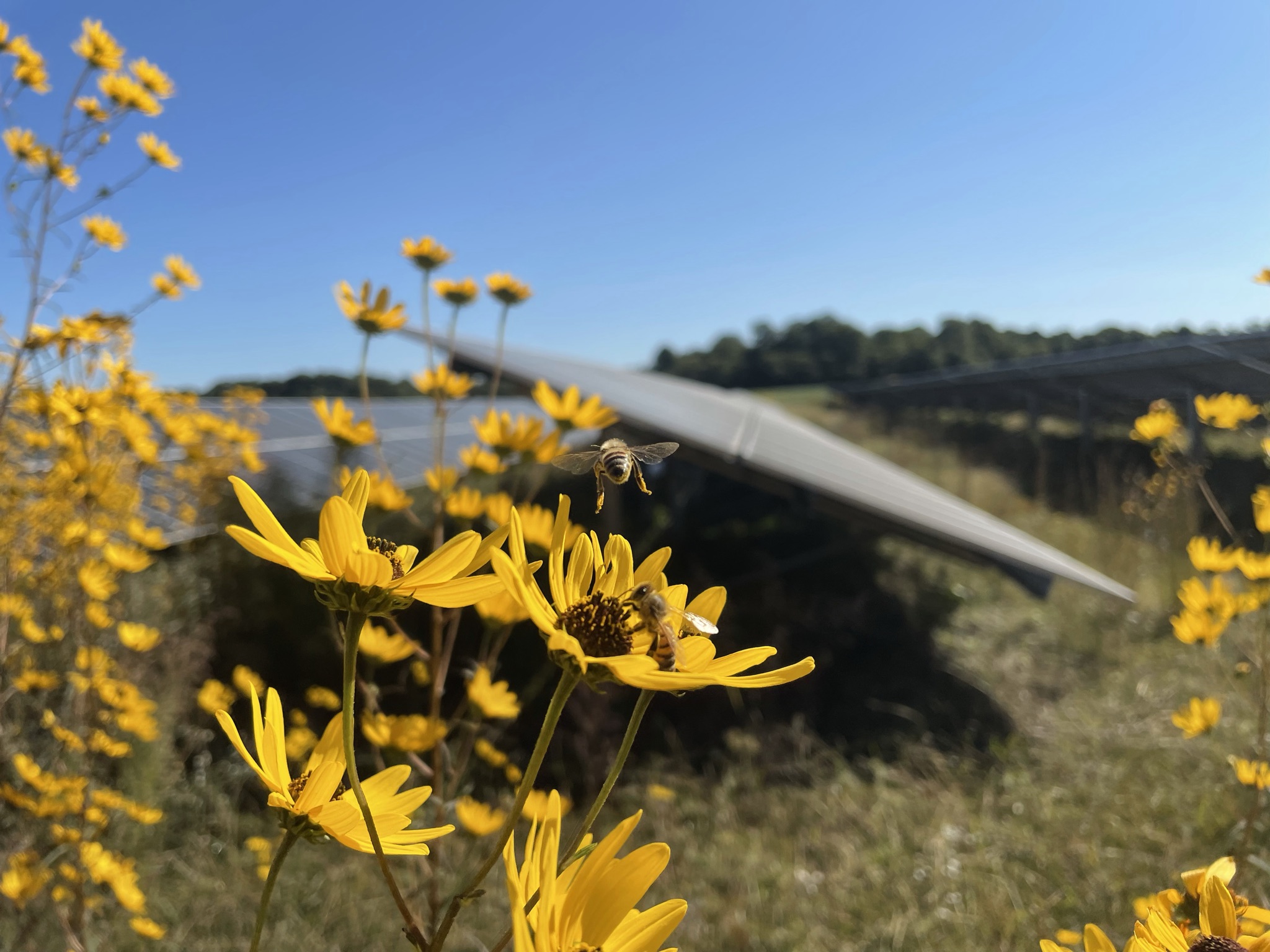
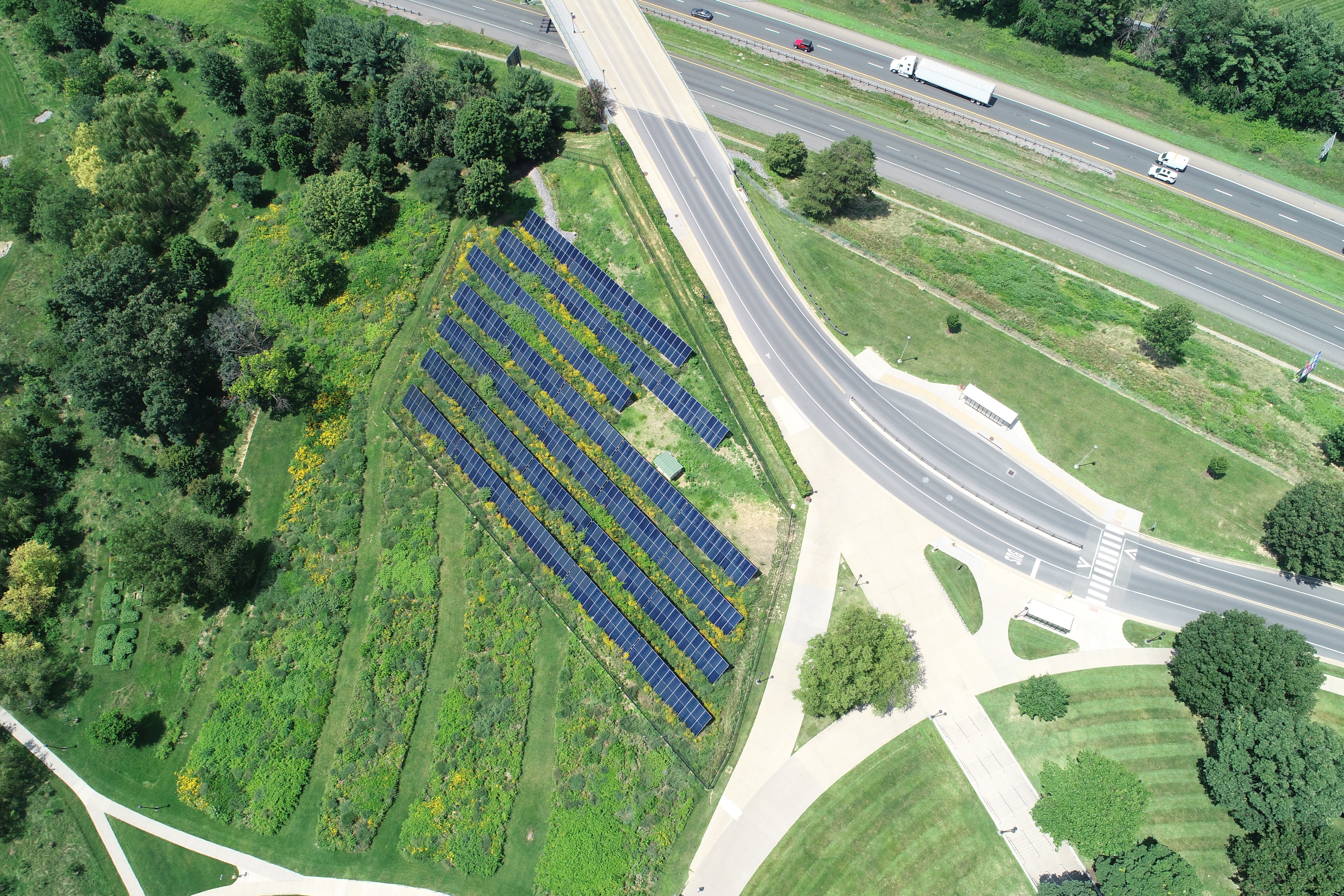
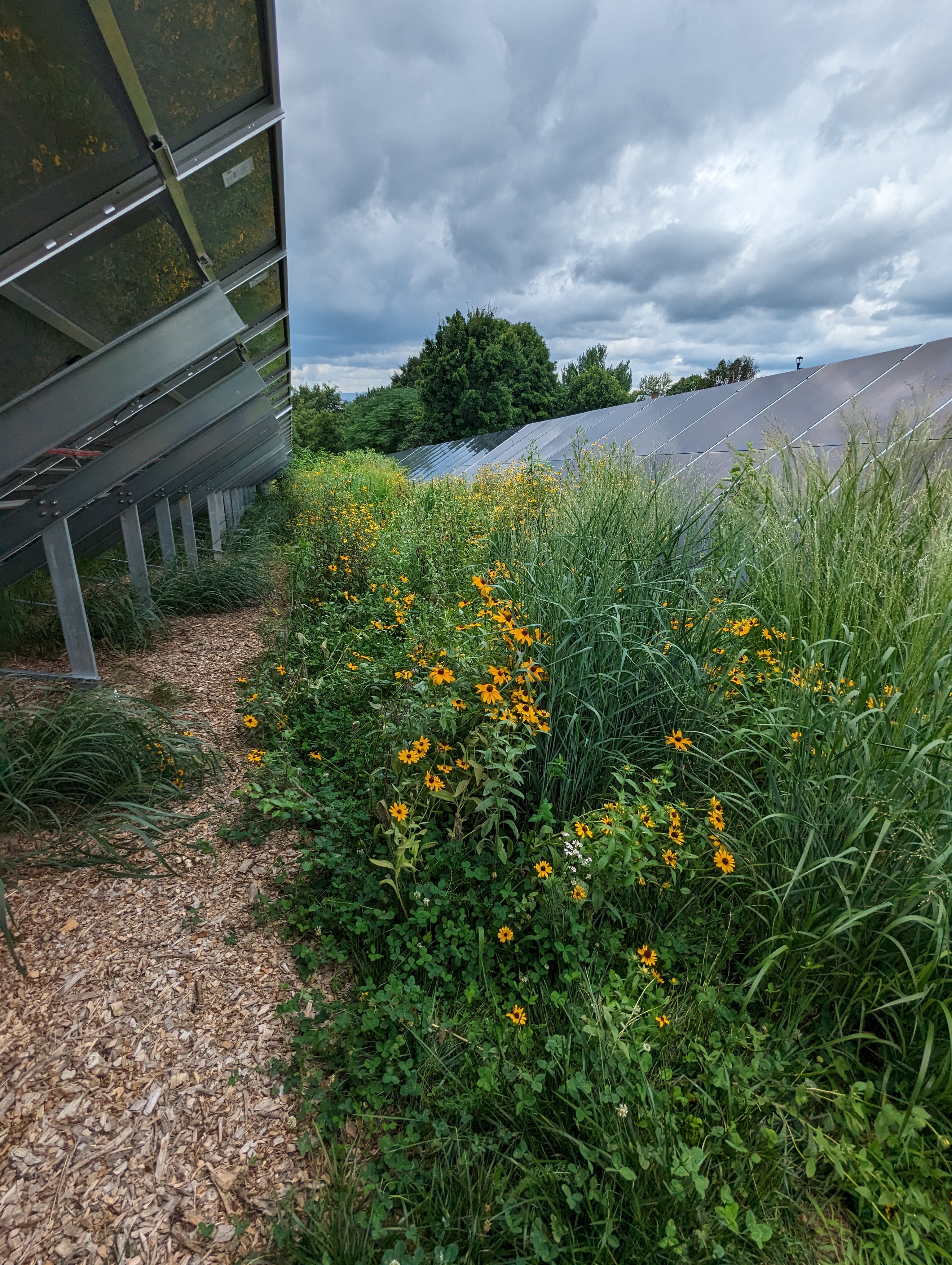
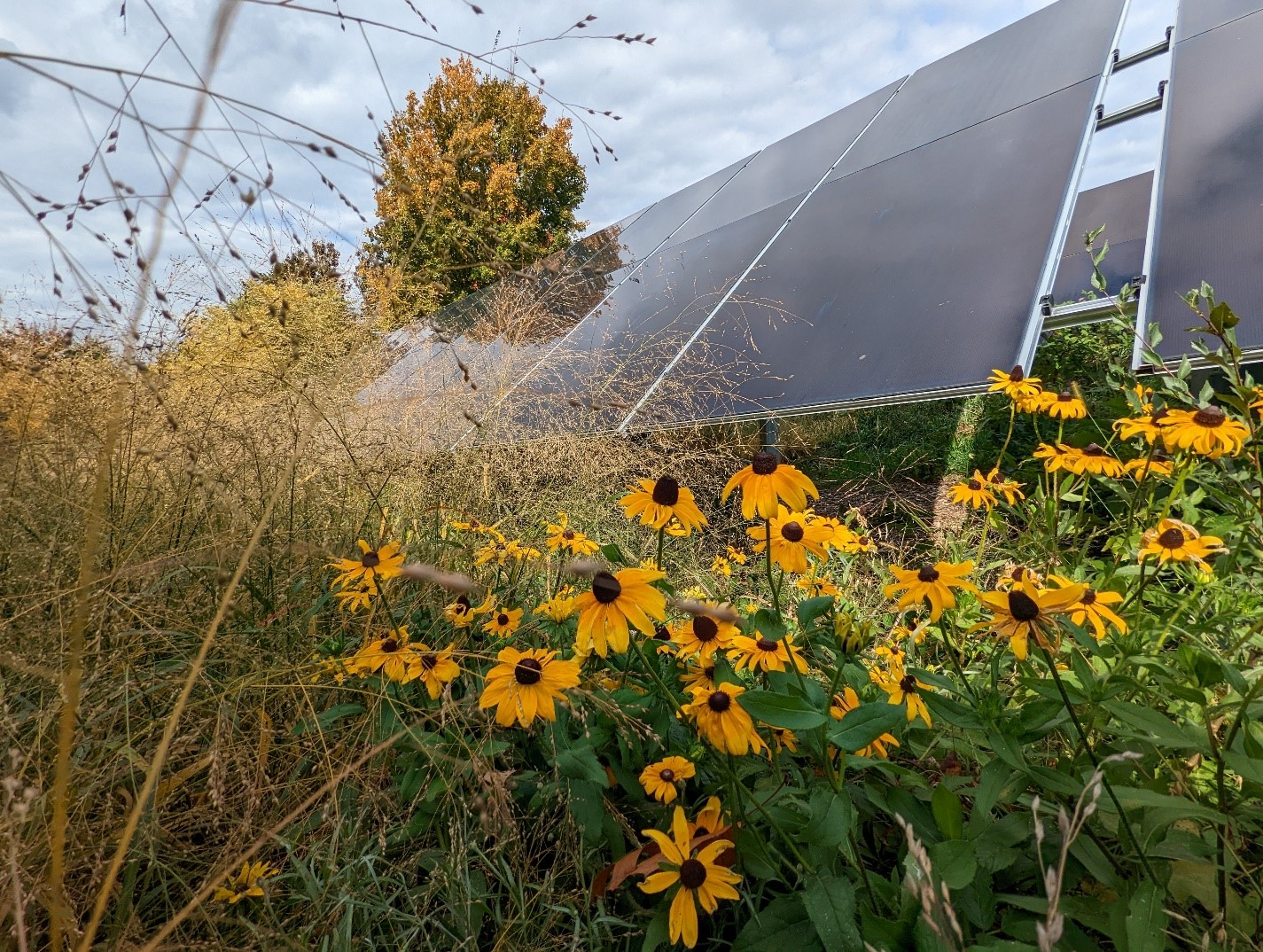
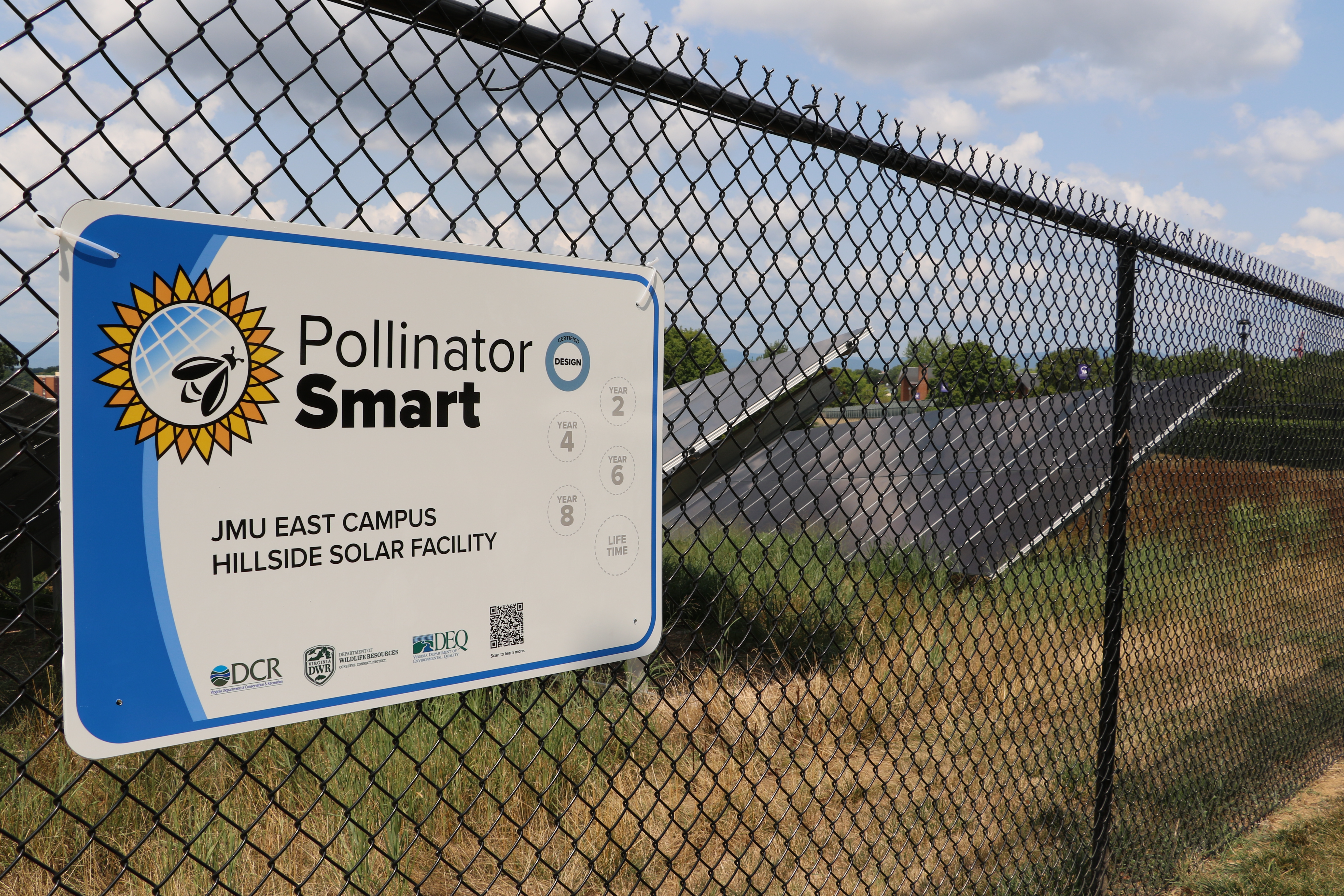
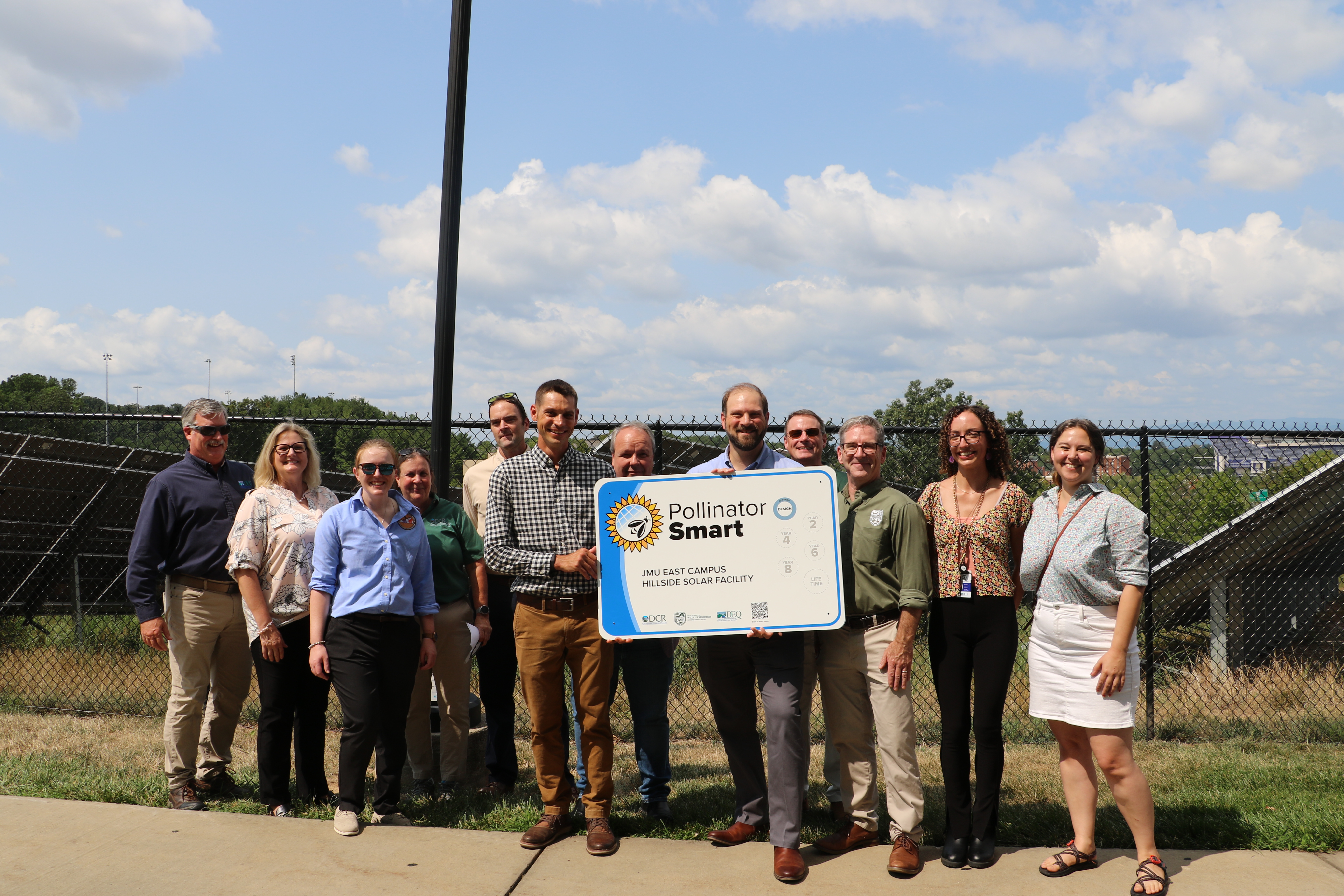
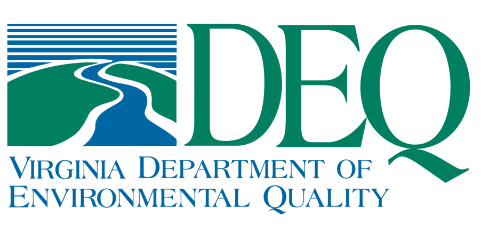

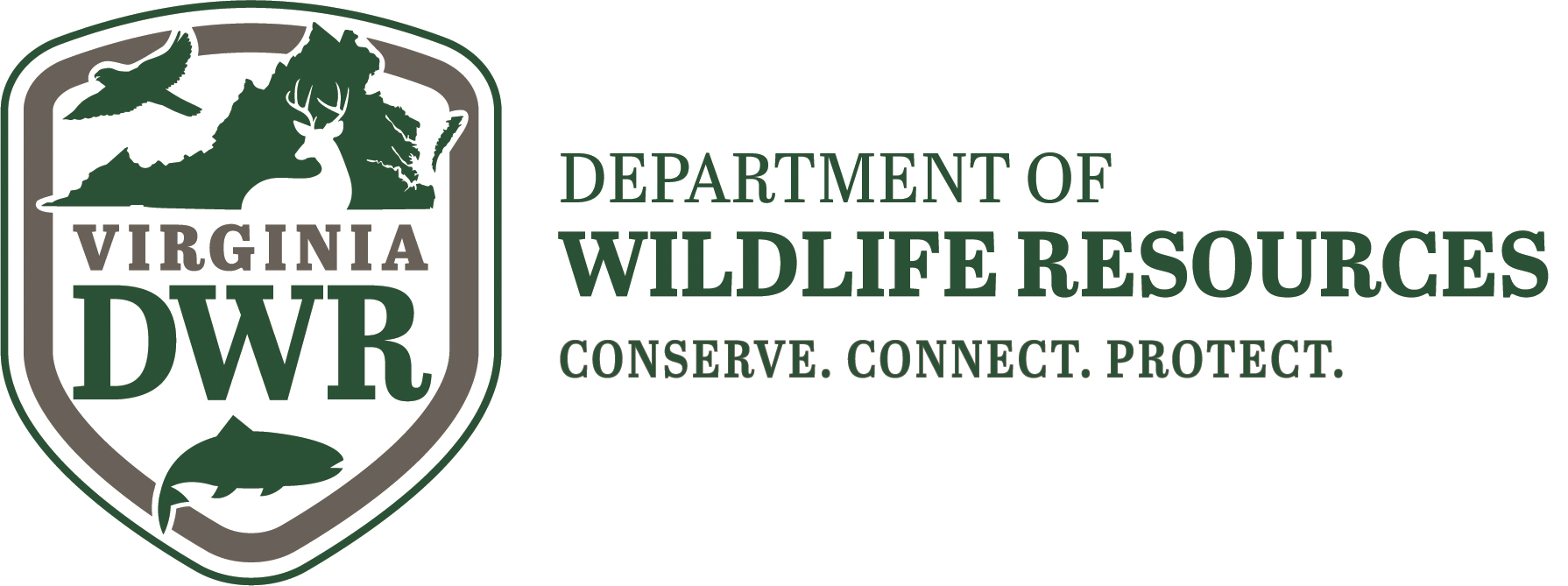
Watch this 1 minute video of 4th Grade Cople Elementary School Sun Tribe Pollinator-Smart Solar Energy Lesson
Click the links below to learn more about the program. If you have questions or comments on the Pollinator-smart program, please contact us at pollinator.smart@dcr.virginia.gov
Virginia's Pollinator-Smart program is designed to provide incentives and tools for solar industry to adopt a native plant strategy to meet soil and water control regulations, community needs, and the needs of our biosphere. In Virginia, the Department of Environmental Quality has oversight of the establishment of solar facilities. To learn about the permit requirements and opportunities for the solar industry in Virginia, visit the DEQ Renewable Energy page. Below are links to supporting documents for creating pollinator-friendly habitat on a solar facility and meeting the criteria of the Pollinator-Smart certification program.
Developed with input from many stakeholders, natural resource scientists, and environmental policy experts, the materials presented here provide detailed guidance for planning, designing, installing, and maintaining a Pollinator-Smart habitat at a solar facility.
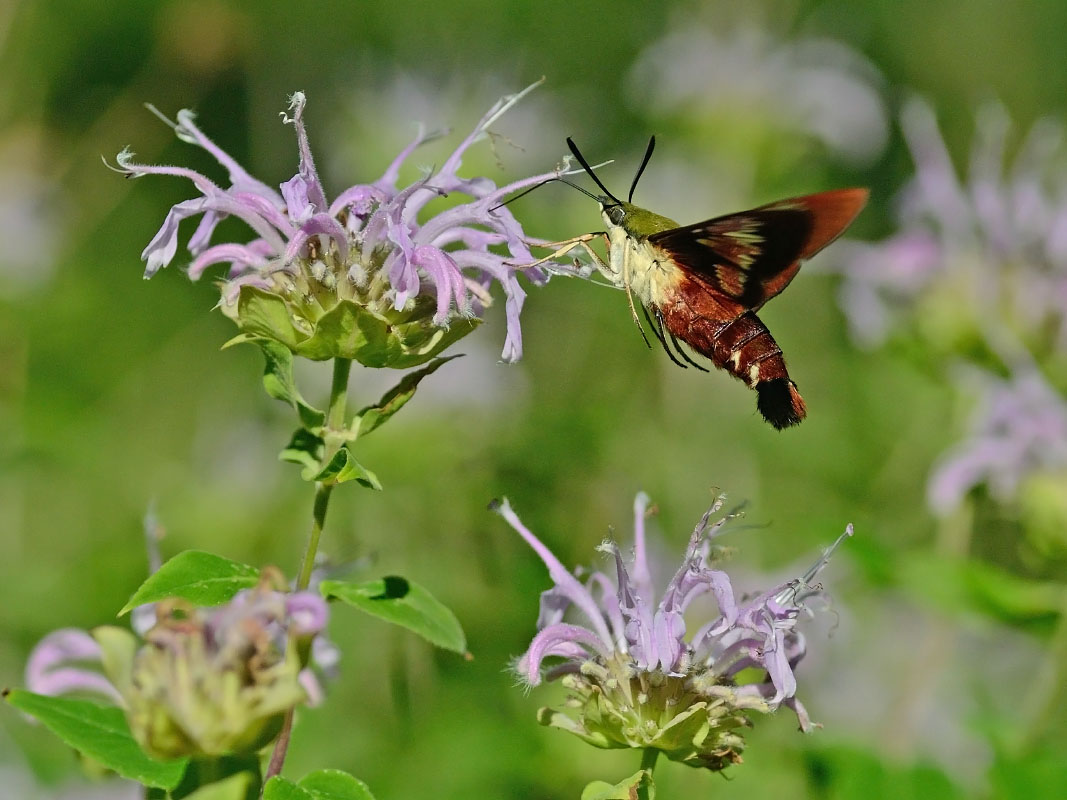 © DCR-DNH, Gary P. Fleming.
© DCR-DNH, Gary P. Fleming.On April 1, 2020 Pollinator-Smart Team members presented a webinar titled "Pollinator Landscapes for Solar Facilities and Beyond" to over 260 participants in lieu of an in-person presentation at the Environment VA Symposium that was cancelled due to COVID-19. This webinar introduces the mechanics of the Virginia Pollinator-Smart Solar Program and goes "beyond" solar by applying the same concepts to other areas of development - such as brownfields, roadsides and transmission lines. Below is a recorded YouTube video of the presentation.
The Virginia Solar Site Native Plant Finder assists users in identifying native plant species appropriate for the various vegetation requirements at a solar facility and match the needs of pollinators and birds. It also includes information on commercial availability.
The Native Plant Finder can also help plant industry with finding native species with potential to be developed into new market commodities. Native seed suppliers are invited to share their information for inclusion in the Native Plant Finder database by emailing pollinator.smart@dcr.virginia.gov.
Below is a recorded YouTube video of the September 8, 2020 virtual stakeholder meeting, targeted specifically to city and county governments and local boards. The presentation introduced the Virginia Pollinator-Smart Program and discussed the benefits of participation and ways it can be used to achieve local goals.
Some Virginia localities have local ordinances and policies that include recommendations for planting native pollinator species. These are developed for each locality specifically, by local governing bodies and procedures. Please see the 2023 Solar Ordinance Report for more information.
For informational purposes, here are some examples provided at the links below:
The DCR Invasive Plant Species List is the result of risk assessment conducted on hundreds of non-native plant species. The list currently identifies 90 species as invasive in Virginia. Invasive species are defined here as non-native species that cause harm to the ecosystem and native species, create economic damage and losses, or pose direct harm to humans. Invasive plant species threaten Pollinator-Smart goals if they are not properly managed at a site.
Through a two-year NRCS Conservation Innovation Grant, the Clifton Institute, Virginia State University, along with other partners are currently collecting native seed and working with farmers to grow native species in Virginia. The Native Seed Pilot Project modeled after similar programs in other states, will establish best practices for farmers to grow Virginia native ecotype species here in the Commonwealth to help jump start a native seed industry.
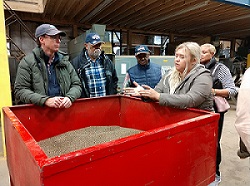
A factsheet on the NRCS Conservation and Innovation Grant - Native Seed Pilot Program is available here.

